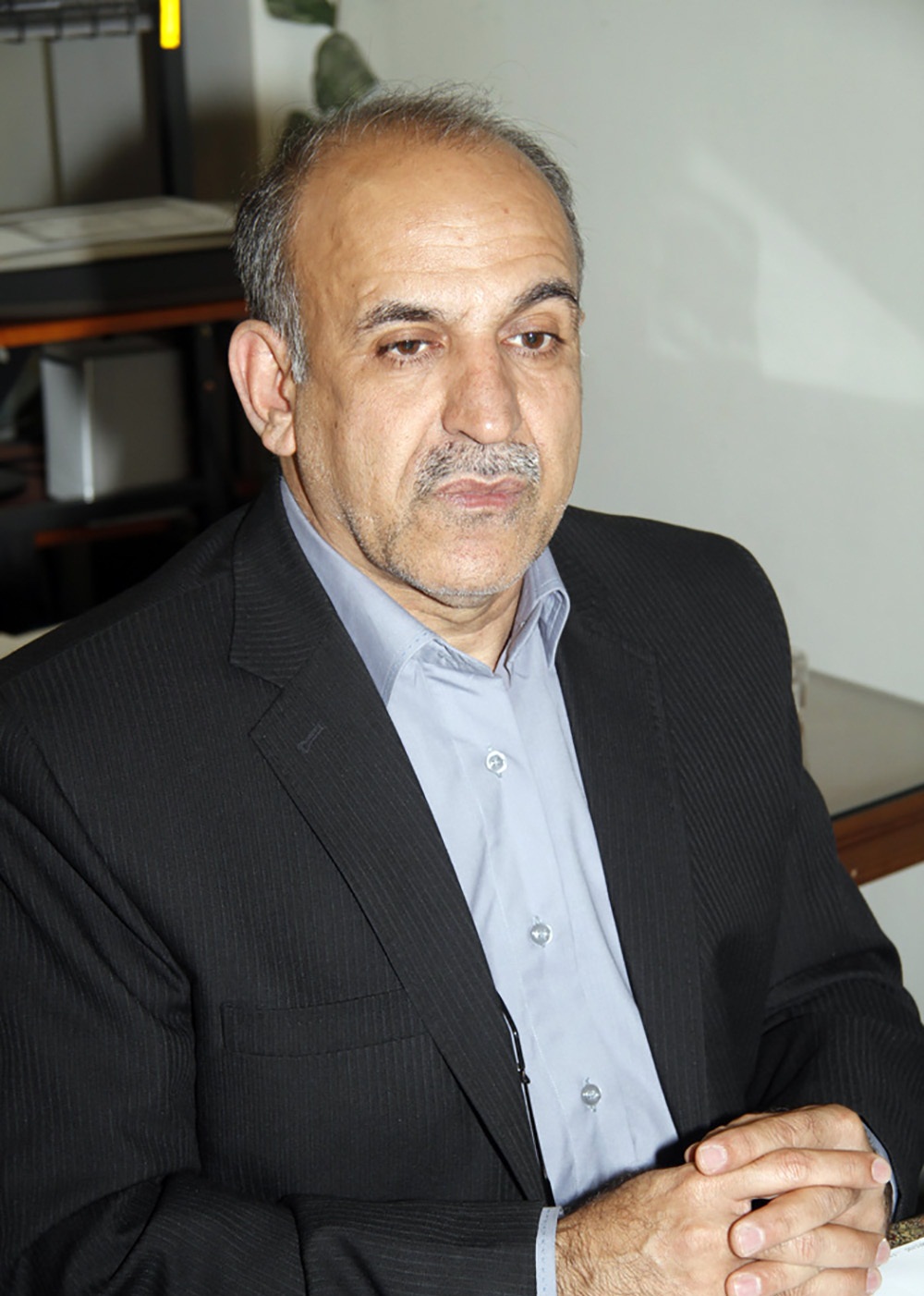Effect of Academic Vitality Training on Educational Neglect and Positive and Negative Academic Emotions of Students
Keywords:
Academic Vitality Training, Students, Negative Academic Emotions, Positive Academic Emotions, Educational NeglectAbstract
ckground and Objective: Factors such as educational neglect and academic emotions play an important role in the academic status of students. Therefore, the current research was conducted with the aim of the effect of academic vitality education on educational neglect and positive and negative academic emotions of students.
Methods and Materials: The present study was semi-experimental with a pre-test and post-test design with a control group. The research statistical population was 6th grade female students of one region of Sanandaj city in the academic years of 2022-2023. The sample of this study was 50 people who were selected by the purposeful sampling method and randomly replaced into two equal groups. The experimental group received 12 sessions of 50 minute of academic vitality education and the control group remained on the waiting list for educating. The research tools included of educational neglect subscale in neglect and abuse questionnaire (Noeparvar Qarebagh & Zeinali, 2019) and academic emotions questionnaire (Pekrun et al., 2002). The data of this study were analyzed by multivariate analysis of covariance test in SPSS-26 software.
Findings: The results of this research showed that academic vitality education reduced educational neglect and negative academic emotions and increased positive academic emotions of students (P<0.001).
Conclusion: Considering the effect of academic vitality education on educational neglect and positive and negative academic emotions of students, counselors and psychologists can use the mentioned method to improve academic characteristics.
Downloads
References
Asirvatham, Sh., & Humphries-Kil, M. (2021). Exploring creativity and vitality of women academics: Reflections on the call for responsible and responsive management education. The International Journal of Management Education, 19(100451), 1-9. https://doi.org/10.1016/j.ijme.2020.100451
Azarian, R., Mahdian, H., & Jajarmi, M. (2020). Comparison the effectiveness of academic buoyancy and emotion regulation training on academic meaning and academic adjustment. Journal of Research in Educational Systems, 14(Special Issue), 483-494. https://www.jiera.ir/article_109773.html?lang=en
Duli, M., Dika, Q., Burazeri, G., Cumashi, R., Hala, R., Agolli, E., & Qirjako, G. (2024). Abuse and neglect as indicators of unhealthy behaviours among 15-year-old schoolchildren in Albania. Public Health, 237, 57-63. https://doi.org/10.1016/j.puhe.2024.09.019
Emami Khotbesara, Z., Mahdian, H., & Bakhshipoor, A. (2021). Comparison of the effectiveness of academic vitality training and psychological capital on academic engagement in female students. Sociology of Education, 7(1), 399-412. https://doi.org/10.22034/ijes.2021.255133
Ershadi Chahardeh, S. (2020). Effectiveness of academic buoyancy training on academic engagement and adjustment to school in firth high school students. Iranian Journal of Educational Sociology, 3(2), 11-19. http://dx.doi.org/10.52547/ijes.3.2.11
Fang, J., Brown, G. T. L., & Hamilton, R. (2023). Changes in Chinese students' academic emotions after examinations: Pride in success, shame in failure, and self-loathing in comparison. British Journal of Educational Psychology, 93(1), 245-261. https://doi.org/10.1111/bjep.12552
Fooladi, A., Kajbaf, M. B., & Ghamarani, A. (2017). Effectiveness of academic buoyancy training on academic meaning and academic performance of third grade girl students at the first period of high school in Mashhad city. Research in School and Virtual Learning, 4(15), 93-103. https://dorl.net/dor/20.1001.1.23456523.1395.4.15.7.7
Fooladi, A., Kajbaf, M. B., & Ghamarani, A. (2018). Effectiveness of academic buoyancy training on academic success and academic self-efficacy of girl students. Journal of Instruction and Evaluation, 11(42), 37-53. https://sanad.iau.ir/en/Journal/jinev/Article/972532
Froydin, A., & Zeinali, A. (2023). The impact of educational neglect and abuse in the executive functions of second year primary school students in Urmia city. Journal of Modern Psychological Researches, 18(71), 187-196. https://doi.org/10.22034/jmpr.2023.54854.5357
Gill, A. C., Singhal, G., Schutze, G. E., & Turner, T. L. (2021). Educational coaches: Facilitating academic vitality and a pathway to promotion for clinician-educators. The Journal of Pediatrics, 235, 3-5. https://doi.org/10.1016/j.jpeds.2020.11.042
Han, Y., & Hyland, F. (2019). Academic emotions in written corrective feedback situations. Journal of English for Academic Purposes, 38, 1-13. https://doi.org/10.1016/j.jeap.2018.12.003
Luo, Q., Ahmadi, R., & Izadpanah, S. (2024. Exploring the mediating role of self-efficacy beliefs among EFL university language learners: The relationship of social support with academic enthusiasm and academic vitality. Heliyon, 10(12), e33253. https://doi.org/10.1016/j.heliyon.2024.e33253
Ma, Y. (2022). The influence of ambient aroma on middle school students' academic emotions. International Journal of Psychology, 57(3), 387-392. https://doi.org/10.1002/ijop.12827
Ngwenya, B. N., Thakadu, O. T., Phaladze, N. A., & Bolaane, B. (2018). Access to water and sanitation facilities in primary schools: A neglected educational crisis in Ngamiland district in Botswana. Physics and Chemistry of the Earth, 105, 231-238. https://doi.org/10.1016/j.pce.2018.03.006
Noeparvar Qarebagh, T., & Zeinali, A. (2019). Development and validation of educational neglect and abuse questionnaire (student form). Journal of Child Mental Health, 6(1), 211-222. http://dx.doi.org/10.29252/jcmh.6.1.18
Pekrun, R., Goetz, T., Titz, W., & Perry, R. P. (2002). Academic emotions in students’ self-regulated learning and achievement: A program of qualitative and quantitative research. Educational Psychologist, 37(2), 91-105. https://doi.org/10.1207/S15326985EP3702_4
Reindl, M., Tulis, M., & Dresel, M. (2018). Associations between friends, academic emotions and achievement: Individual differences in enjoyment and boredom. Learning and Individual Differences, 62, 164-173. https://doi.org/10.1016/j.lindif.2018.01.017
Shah, D. T., Williams, V. N., Thorndyke, L. E., Marsh, E. E., Sonnino, R. E., Block, S. M., & Viggiano, T. R. (2018). Restoring faculty vitality in academic medicine when burnout threatens. Academic Medicine, 93(7), 979-984. https://doi.org/10.1097/acm.0000000000002013
Van Wert, M., Fallon, B., Trocme, N., & Collin-Vezina, D. (2018). Educational neglect: Understanding 20 years of child welfare trends. Child Abuse & Neglect, 75, 50-60. https://doi.org/10.1016/j.chiabu.2017.04.034
Winquist, A., Leiker, C. B., Landis, T., Fraser, J., Eddy, L. L., & Burduli, E. (2023). Development and psychometric evaluation of the reporting suspected child abuse and neglect (RSCAN) scale for United States registered nurses. Journal of Pediatric Nursing, 73, 319-326. https://doi.org/10.1016/j.pedn.2023.09.029
Yarahmadi, Y., Ebrahimibakht, H., Asadzadeh, H., & Ahmadian, H. (2018). The effectiveness of academic buoyancy training program on students’ academic performance, academic engagement, and academic buoyancy. Journal of Research in Teaching, 6(2), 163-182. https://dorl.net/dor/20.1001.1.24765686.1397.6.2.10.3
Zare, H. (2014). Causal model of predicting virtual education students’ academic achievement: the role of intelligence beliefs, achievement goals and academic emotions. Research in School and Virtual Learning, 1(3), 9-18. https://dorl.net/dor/20.1001.1.23456523.1392.1.3.1.6
Zusman, N., Koton, S., Tabak, N., & Wruble, A. C. K. W. (2024). The mediating role of nurses' attitude towards reporting child abuse and neglect. Journal of Pediatric Nursing, 78, 106-111. https://doi.org/10.1016/j.pedn.2024.06.009




























